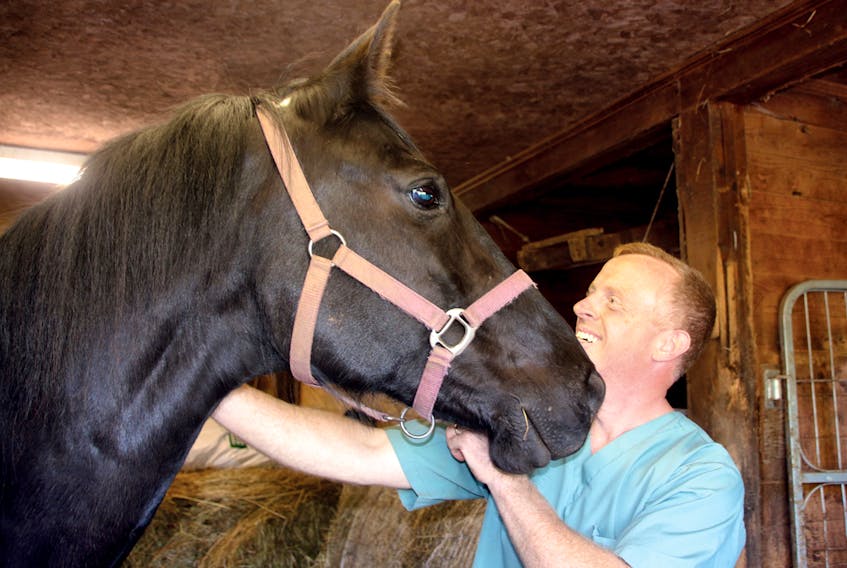TRURO, N.S. – Dr. Trevor Lawson has been receiving daily calls from clients, after a highly contagious horse disease showed up in all three Maritime provinces this month.
Strangles is a bacterial infection that affects the upper respiratory tract and can result in horses becoming seriously ill, and even dying.
“The best tool is to be aware when it’s around, and make informed decisions,” said Lawson, who works with Fundy Veterinarians.
“Within our practice area there have been no positive cases yet, but we would sooner have a false alarm than have a horse with the disease go three or four days before it’s diagnosed.”
Barns where strangles is found are quarantined, and it’s important to take steps to prevent the spread of the disease. Although only horses contract the disease, other animals and people often spread it.
“It can be transferred on footwear, clothing, hands, buckets, wheelbarrows…” said Lawson. “We advise clients to be very careful on biosecurity. Use your own implements, and have separate boots if you’re going between barns. Something like gloves can easily spread the disease.”
Some horse shows have been postponed because of the outbreak and several programs have been forced to stop temporarily.
Jackie Moore keeps three horses at her home, in Onslow. She’s been paying close attention to the reports of strangles.
“I’m not concerned mine will pick it up because they’re mostly home bodies,” she said. “Later in the year, I’d like to take my young horse to a show or two, but if this is still around I’ll wait for next year.”
Moore also plans to be extra cautious and will avoid contact with other horses at events.
“I won’t be exposing myself to anything,” she said.
Symptoms of strangles include nasal discharge, fever, cough, loss of appetite and swollen lymph glands. A horse showing signs of illness should be kept away from other animals and a veterinarian should be called. With proper care, most horses recover.
Some horses become ‘silent shedders.’ They show no signs but can infect other horses. Once a horse recovers from strangles, it needs to be tested to make sure it’s not still shedding the disease.
Vaccinating horses before they’re exposed to the disease is also effective.
“We recommend the vaccine for horses who are at an increased risk of contracting the disease,” said Lawson. “Vaccines may not prevent every case, but if a vaccinated horse contracts the disease it will be less severe and of shorter duration.”
Moore agrees, and hopes fellow horse owners will consider vaccination, for the good of all.
“It seems more cases are popping up lately, so I’d make sure to vaccinate a horse before travelling,” she said. “I’d encourage people to be aware of what to do to protect their horses because it’s a scary disease.”
A Halifax police horse, at the Halifax Junior Bengal Lancers stable, was diagnosed with strangles this month. The stable will be under quarantine until the end of June, and possibly longer.
More information on strangles can be found at http://www.equine-strangles.co.uk/ .









